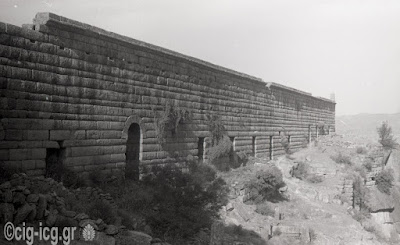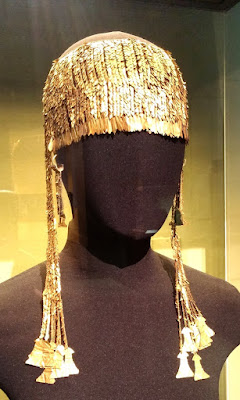Tuesday, February 23, 2016
The Fred Winter Collection
Friday, February 19, 2016
It's all about the pots!
Our Winter / Spring Institute Lecture Program continues on Wednesday, February 24th. We are very pleased to have Florence Liard (Postdoctoral Researcher, Université Libre de Bruxelles) give the presentation at 7:30 PM in the Library of the Institute. The title of her lecture is, “The knowledge, skills and traditions of ancient potters: Exploring the principles and potential of ceramic petrology in Greek archaeology”.
The detection of markers of “crisis”, which can be broadly defined as a deep social disruption followed by restructuring, is a research theme that has become popular in Greek archaeology. It has often been researched through a typo-stylistic study of decorated pottery, with the aim of reconstructing historical landmarks of past civilizations.
This lecture investigates the use of ceramic petrology over the past 35 years, through a comparative account of studies carried out in protohistoric (Late Bronze Age Crete) as well as historical contexts (Late Byzantine and Frankish Greece). Advances in sampling strategies and instrumentation are discussed in relation to the evolution of wider theoretical frameworks and research inquiries in the discipline of archaeology.
Dr. Liard will discuss how and to what extent ceramic petrology, albeit at the dawn of its development in this context, can provide further understanding of the phenomena of crisis and their local outcome on past populations’ lifestyles, through a detailed study of technological traditions associated with pottery production and use.
We look forward to welcoming you to the Institute on Wednesday to learn more about ceramic petrology and its applications.
Best wishes,
Jonathan Tomlinson
Assistant Director
Tuesday, February 16, 2016
The Fred Winter Collection
Friday, February 12, 2016
Andreas Papandreou as populist
Andreas Papandreou, better known to his adoring public as Andreas, has proved to be the most unfathomable political figure in the history of Greek parliamentary politics. Despite a combination of good breeding and excellent education he became the leading exponent of populism in Greece. Prof. Veremis will try to explain in the lecture this apparent paradox.
The lecture is sponsored by the Syllogos Filon tou Istorikou Archeiou tis Archaiologisikis Yperesias. It will be held at the Historical Archive building at Psaromylingou 22 on the cusp between the Kerameikos and the Psyrri Districts. The Theseio Train Station is the nearest Metro access point.
Cordially,
David Rupp
Director
Tuesday, February 9, 2016
Friday, February 5, 2016
Everything you wanted to know about fabulous wealth in the ancient world, but...
Is truth stranger than fiction? Is it a curse to be wealthy beyond your wildest dreams? Come to the lecture find out the answers to these perennial questions and more!
Cordially,
David Rupp
Director











